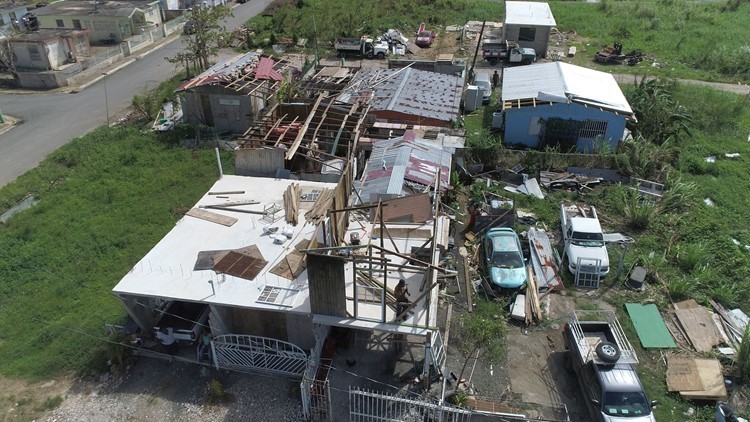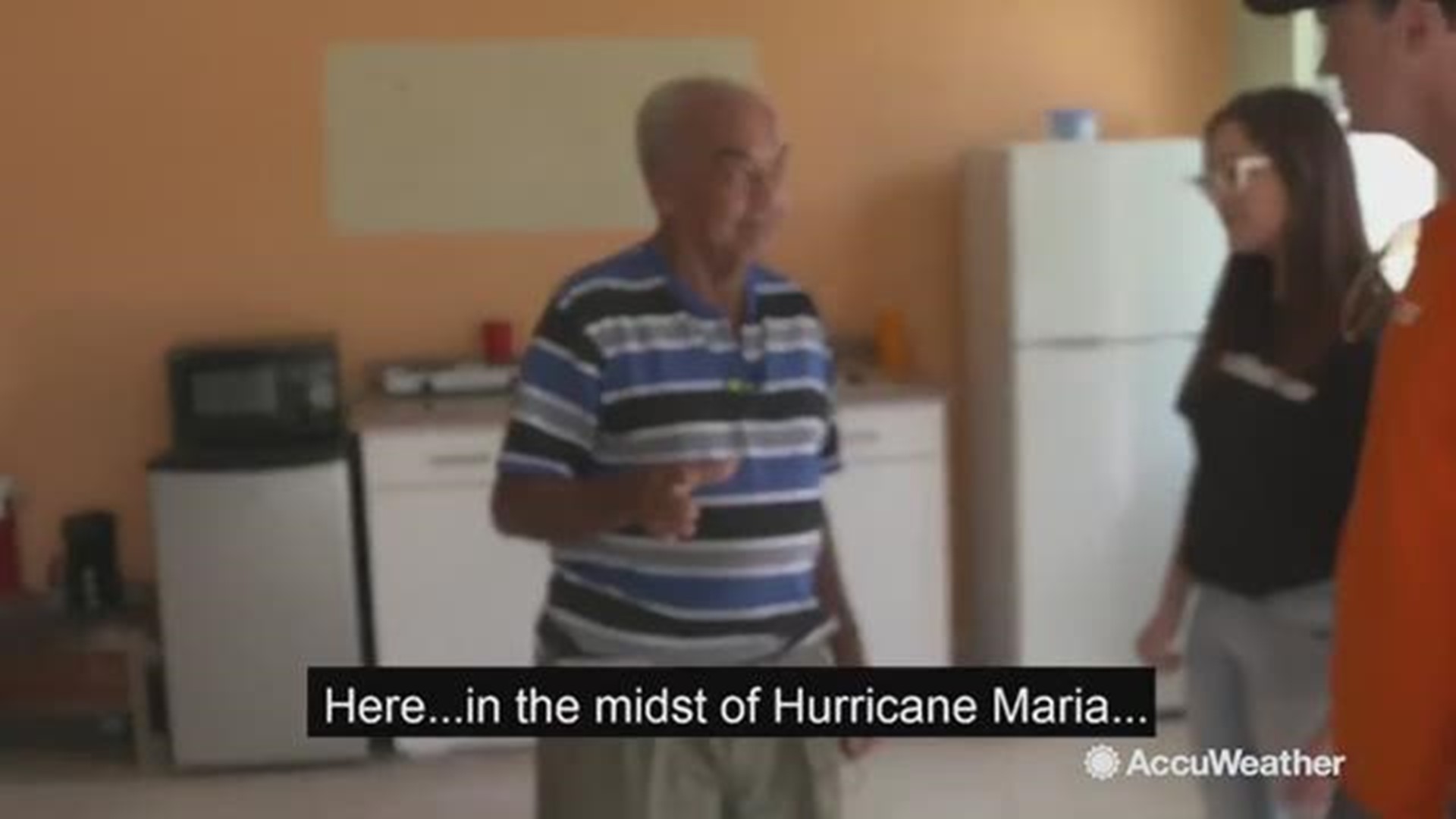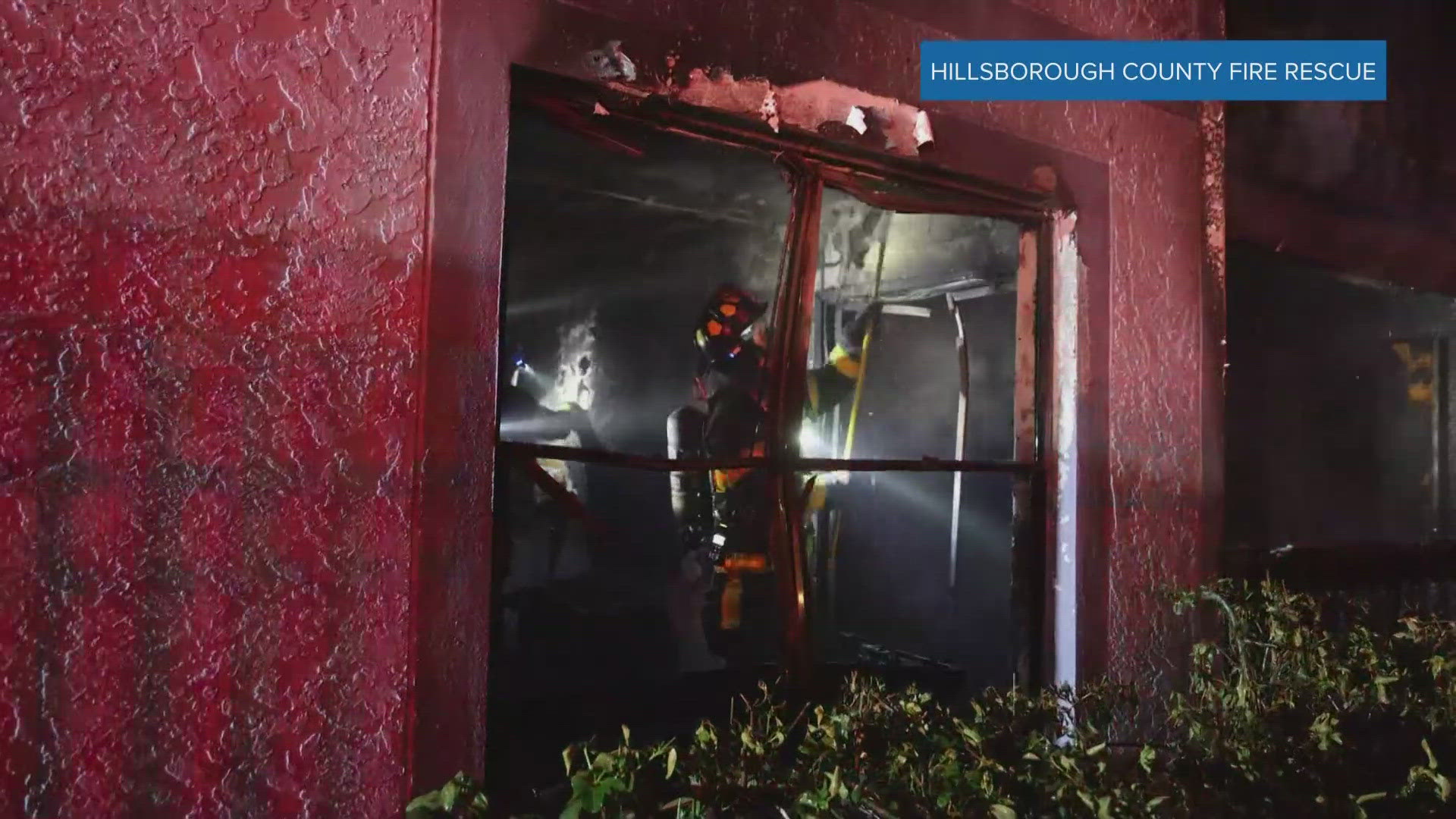Iran Maldonado Cevedo is living in this Tampa motel room with his two brothers, who have special needs.
It’s a temporary fix. He’s waiting for a long-term solution.
Miguel and Juan Maldonado have had severe mental disabilities since birth. They need around the clock care.
“Because we have low income they’re going to get me a place but just a one bedroom," Iran Maldonado says.
Jeannie Calderin runs SOMOS Puerto Rico, an organization that works to find permanent housing for hundreds displaced by Hurricane Maria.
“I need long-term," Calderin says. "I need to know what’s going to happen with this family. There is disaster assistance -- THE DHAP program -- that needs to be activated. I don’t understand if they have used it before. They used it for Katrina, and it worked. Why is it that now they want to try a new method? It doesn’t make any sense."
She, and many others, don’t understand why the Disaster Housing Assistance Program, or DHAP, has not been activated. It was used in response to hurricanes Sandy and Katrina.
“The only things that I’ve heard from FEMA is that the disaster happened in Puerto Rico. It didn’t happen here in Tampa, so they have put a lot of programs together to reconstruct in Puerto Rico," Calderin says.
Accord to her, that leaves people on the mainland -- who don't want to go back -- without many options.
The DHAP program provides rent subsidies, security-deposit assistance and also helps pay for utilities.
Instead, they have FEMA’s Transitional Sheltering Assistance Program. It provides housing for more than 7,000 families throughout the country.
The agency refuses to allow the Department of Housing and Urban Development to use its DHAP program.
FEMA says the program is “inefficient,” “not cost-effective,” and “not necessary” for displaced Puerto Ricans.
On its website, the agency explained: “administrative costs account for about 40 percent of tax dollars spent on the program.”
FEMA says it developed the direct lease program as a more cost-effective way to provide housing to disaster survivors.
“Under DHAP, survivors are required to pay a portion of the rental payments, Under FEMA’S Direct Lease program, FEMA covers 100 percent of the rent based on the fair market rate," the agency says.
So, while this is all being debated, some families are looking for other solutions.
Lilliam Vazquez found a job cleaning hotel rooms in Tampa. She has already been promoted to a supervisor position. Her 11-year-old daughter has a 4.0 GPA in school, despite speaking very little English.
Vazquez was paying $300 a week for a motel room and found it very hard to get on her feet. Nine months after leaving Puerto Rico, she got help.
Catholic Charities is paying for her first three months rent, utilities and the security deposit on a new home.
►Make it easy to keep up-to-date with more stories like this. Download the 10 News app now.
Have a news tip? Email tips@wtsp.com, visit our Facebook page or Twitter feed.




